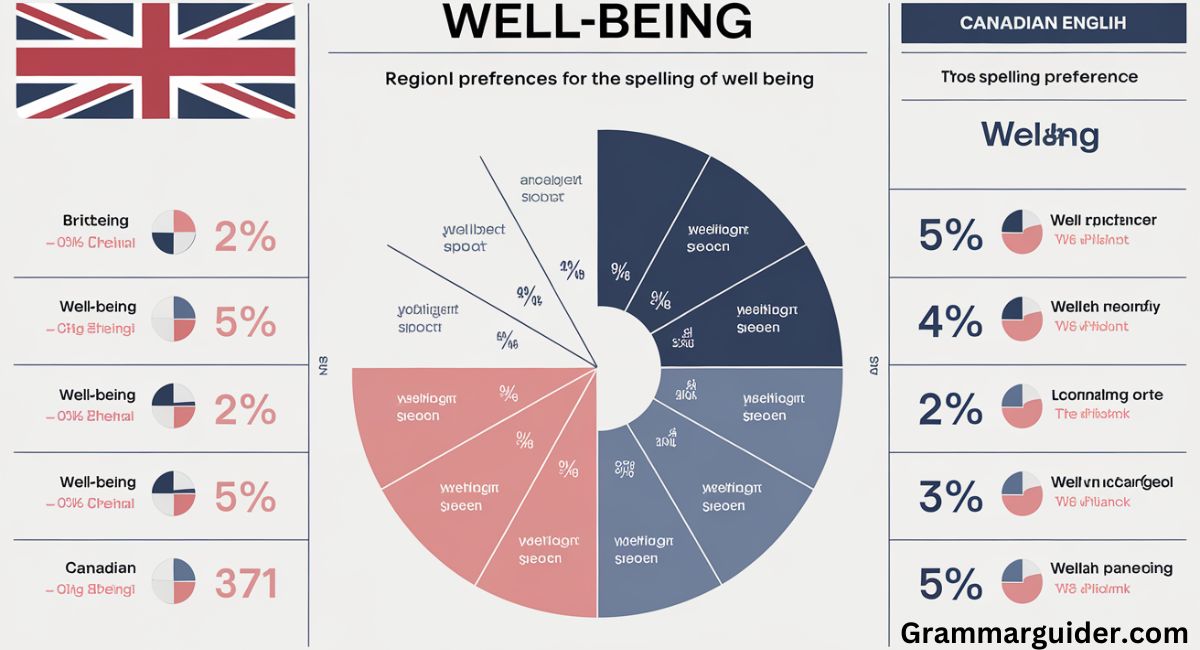well-being, vs wellbeing, and well being is the difference between the terms . These terms are commonly used in contexts relating to health, happiness, prosperity and overall welfare. But understanding their subtle differences and proper usage.
It is essential for clarity in both formal and informal writing. we will dissect these terms and provide concrete examples of how they are used in various contexts, including emails, business letters, and academic writing.
We will also explore the importance of hyphenation and how spelling can affect the meaning and professionalism of your writing.
Understanding the Terms: Well-being, Wellbeing, and Well Being
Before we delve into the detailed usage scenarios, let’s first define each term clearly. The differences between these terms may seem small at first glance, but they significantly impact the tone, clarity, and professionalism of your writing.

Well-being: The Formal and Standard Form
Well-being is the standard, formal version of the term. It refers to a state of health, happiness, and overall prosperity. This term is commonly used in academic and formal writing because of its precision.
As a compound noun, it is created by combining the adjective well and the noun being, and the hyphen is important in indicating that these two words together represent a single, unified concept.
Scenario Example (Formal Writing)
Consider a situation where you are drafting an email to a colleague about promoting wellness initiatives within the workplace. The following example shows how to properly use well-being in formal communication:
Subject: Promoting Employee Well-Being in the Workplace
Dear Sarah,
I hope this message finds you well. I wanted to discuss the importance of prioritizing employee well-being in our upcoming corporate wellness strategy. Studies show that improving well-being in the workplace leads to enhanced productivity and job satisfaction. I propose that we allocate resources toward mental health support and physical wellness programs to ensure our employees’ overall well-being.
Looking forward to your thoughts.
Best regards,
James Thompson
In this email, well-being is used in the context of health, happiness, and prosperity. The hyphen emphasizes that the term represents a holistic and comprehensive approach to welfare.
Wellbeing: The Informal Spelling Variant
Wellbeing is an alternative spelling of well-being. Although it is not considered incorrect, it is typically used in less formal contexts. This version of the term is more common in British English and informal writing. Such as blog posts, media articles, and casual discussions. While wellbeing is acceptable, it is generally regarded as a more relaxed or contemporary form of the word.
Scenario Example (Informal Writing)
Imagine you are writing a blog post about mental health, and you want to provide tips on improving wellbeing. Here’s how you might use the term in this context:
Title: Simple Ways to Boost Your Wellbeing
Taking care of your wellbeing is essential for leading a balanced and fulfilling life. It’s important to focus on both your mental and physical health. A few simple steps, like practicing mindfulness, getting enough rest, and eating a balanced diet, can dramatically improve your wellbeing.
Incorporating these habits into your daily routine will help you stay happy, healthy, and energized.
wellbeing is used to discuss overall health, happiness, and emotional balance. The term is more fitting for the informal tone of the article.
Well Being: The Outdated or Incorrect Usage
Well being (without the hyphen) is rarely used in modern writing and is considered an outdated or incorrect form of the word. It was once seen in older texts, but the lack of hyphenation makes the meaning unclear, and it does not properly form a compound noun.
In formal or academic contexts, using well being would be seen as a grammatical error, and it’s best to avoid this version of the term entirely.
Scenario Example (Incorrect Usage)
Let’s say you are writing an academic paper on employee wellness, and you incorrectly use well being. Here’s how this might look:
Title: The Impact of Employee Well Being on Organizational Success
The research shows that employee well being plays a critical role in overall productivity and job satisfaction. Companies that focus on improving well being often see better performance and lower turnover rates.
In this example, well being is incorrect. The correct form would be well-being, which is more precise and professional for academic or formal contexts.
Hyphenation: Why It Matters

The Importance of Hyphenation in Compound Nouns
The use of a hyphen in well-being is not just a matter of spelling preference; it serves an important grammatical function. When two words are combined to form a compound noun.
The hyphen helps to clarify that the two words should be understood as a single unit of meaning. The term well-being represents a concept that combines both physical and emotional health, and the hyphen ensures that readers interpret it correctly as such.
The hyphen is essential for clarity and professionalism, particularly in formal or academic writing. Without the hyphen, there is a risk that readers may misinterpret the phrase, or that the term could be mistaken for two separate ideas.
Scenario Example (Academic Writing)
In an academic essay, proper hyphenation is crucial for clarity. Here’s an example of how well-being should be used in an academic context:
Title: The Role of Well-Being in Psychological Health
Research has demonstrated that individuals who experience high levels of well-being tend to have better psychological health. This includes not only physical health but also emotional and psychological aspects. Improving well-being has a profound impact on overall happiness and mental stability.
In this academic context, the hyphenated well-being is used to convey the idea of a holistic state of health, emphasizing the combination of emotional, mental, and physical well-being.
Regional Preferences: British, American, and Canadian English

British English
In British English, both well-being and wellbeing are used, but the hyphenated form (well-being) is generally preferred in formal writing. However, wellbeing is more common in informal settings, such as magazines, blogs, and self-help articles.
American English
In American English, the hyphenated form well-being is the most commonly used in both formal and informal contexts. The unhyphenated wellbeing is rare and not widely accepted. Therefore, if you are writing for an American audience, always use well-being to ensure consistency and professionalism.
Canadian English
Canadian English allows for both forms. While the hyphenated form well-being is preferred in formal contexts, such as academic papers and official documents, wellbeing is often used informally in casual writing.
Synonyms for Well-being: Expanding Your Vocabulary
While well-being and wellbeing are the most common terms, there are several synonyms you can use depending on the context. These include terms like welfare, health, wellness, happiness, and prosperity. Here’s a brief look at some of these synonyms and when they might be appropriate.
Scenario Example (Using Synonyms)
In a business report focused on employee satisfaction, you might use a variety of synonyms to convey similar concepts:
Title: Strategies for Enhancing Employee Welfare and Wellness
Dear Team,
As we continue our efforts to enhance overall employee welfare, it is essential to address both health and well-being. We must ensure that our employees have access to resources that promote wellness and a positive work-life balance. Improving these areas will ultimately contribute to greater happiness and prosperity within the organization.
Best regards,
Alice Davis
Human Resources
In this example, the terms welfare, health, well-being, wellness, happiness, and prosperity are used interchangeably to convey the idea of a holistic approach to employee welfare.
Correct Usage Guidelines
Correcting Common Mistakes
To ensure that you are using the correct spelling in your writing, it’s important to keep a few guidelines in mind:
- Well-being is the correct form for formal and academic contexts. Always use the hyphen to indicate a compound noun.
- Wellbeing is acceptable in informal writing, but it is more common in British English.
- Avoid using well being without the hyphen, as it is considered outdated and incorrect.
- Pay attention to the regional differences between British, American, and Canadian English when deciding which form to use.
Conclusion
The differences between well-being, wellbeing, and well being is essential for clear and effective writing. The hyphenated form, well-being, is the preferred version in formal and academic writing, while wellbeing is more commonly used in informal settings.
Well being, however, should be avoided as it is outdated and often considered a grammatical error. By following these guidelines and considering your audience, you can ensure that your writing reflects both clarity and professionalism.
Whether you are drafting a business letter, writing an academic essay, or composing a blog post, the right spelling can make all the difference in how your message is received.

Jacob Harrison is the seasoned writer behind Grammar Insights, with over nine years of experience in the field. Passionate about language, he shares practical tips and strategies to help readers enhance their grammar and writing skills. With a friendly approach, Jacob makes learning accessible and enjoyable for everyone.

